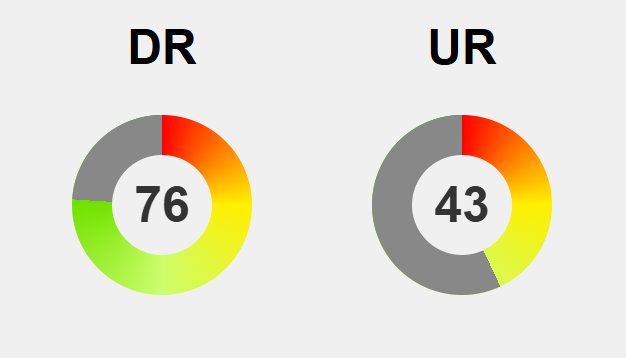Our understanding of intelligence is shifting as genetic research uncovers how DNA influences cognitive potential more than ever before. While environmental factors like education and nutrition remain vital, evidence suggests that genetics—through countless tiny variations—play a significant role in shaping brain development, memory, and reasoning. The complex, polygenic nature of intelligence means no single ‘smart gene’ exists; instead, a vast network of genetic influences collectively set the foundation for mental abilities. This nuanced view offers exciting possibilities for personalized education and early intervention but also raises ethical questions about privacy and fairness. Can harnessing these genetic insights help unlock human potential while ensuring equitable opportunities? As science advances, it holds the promise of tailoring support and nurturing talent, yet it must be guided responsibly. Ultimately, understanding our genetic blueprint could redefine how we perceive intelligence, diversity, and the very limits of human achievement.
Unveiling the Genetic Blueprint Behind Human Intelligence
Our understanding of intelligence has long balanced the influences of environment and biology. Recently, advances in genetics have shifted that view, revealing that DNA plays a more significant role than many previously believed. Scientists now see intelligence as a complex trait shaped by many genes working together, rather than by a single “smart gene.” These genetic factors influence brain development, neural connections, and cognitive processes, forming a biological foundation for mental abilities.
This new perspective highlights that our potential isn’t determined solely by upbringing or education. Instead, our genes set certain limits and possibilities, shaping how our brains grow and function. Variations in genes related to neural growth or neurotransmitter regulation can affect learning speed, memory, and reasoning skills. Recognizing the genetic contribution doesn’t diminish the importance of environment but emphasizes that biology provides the groundwork on which experience builds.
With tools like genome sequencing becoming more accessible, researchers are uncovering the layered genetic architecture behind intelligence. They’re identifying small-effect variants spread across our DNA that collectively impact cognitive potential. This polygenic nature means differences in IQ and mental agility often stem from a vast network of genetic influences rather than a handful of “genes for intelligence.”
Understanding how DNA influences intelligence deepens our appreciation of human diversity. It explains why some excel in certain areas while others face challenges—all rooted in the intricate interplay of genetics. This knowledge opens avenues for personalized education strategies and health interventions, tailored to each person’s unique genetic makeup.
As science continues to evolve, it’s clear that DNA holds many secrets behind our mental capabilities. Exploring this genetic blueprint offers a promising path toward unlocking human potential responsibly, with awareness of ethical considerations.
Decoding the Biological Roots of Cognitive Abilities
The genetic foundation of intelligence is rooted in how our DNA influences the development and functioning of the brain. Genes serve as instruction manuals for building proteins that determine neural growth, connectivity, and communication pathways—fundamental elements in cognitive processes. Variations in specific genes can impact brain size, neural density, and the efficiency of neural networks, all of which influence abilities such as memory, reasoning, and problem-solving.
Early research, particularly twin studies from the early 20th century, highlighted the significant role of genetics. Identical twins often show more similar IQ scores than fraternal twins or adopted siblings, underscoring heritability’s importance. As genetic analysis technology advanced, scientists shifted from broad estimates to pinpointing specific genetic markers associated with cognitive abilities, deepening our understanding of DNA’s influence on mental capacity.
Today, we recognize intelligence as a polygenic trait, affected by thousands of tiny genetic differences scattered across the genome. Variants in genes involved in brain development, neural plasticity, and neurotransmitter regulation subtly influence neural growth and communication. These small genetic differences accumulate over time, shaping an individual’s mental potential and adaptability.
Certain genes stand out for their roles in neural development. For example, BDNF influences neurotrophic factors that support neuron growth and synaptic plasticity, crucial for learning and memory. Similarly, variations in the COMT gene affect dopamine levels, impacting reasoning and cognitive flexibility. These genetic factors form the biological blueprint that shapes how our brains grow, operate, and adapt.
Understanding these genetic influences reveals that intelligence isn’t dictated by a single gene but by a complex network of interactions. Advances in sequencing technology continue to uncover small-effect variants, emphasizing the layered, interconnected nature of our genetic architecture. This insight helps explain individual differences and highlights the biological roots of our cognitive potential, paving the way for further exploration of the genetics-environment interplay.
The Complex Web of Genes Shaping Intelligence
The idea that intelligence is influenced by many genes working together is at the heart of its polygenic nature. Instead of being controlled by a single “smart gene,” research shows that hundreds, sometimes thousands, of tiny genetic variations collectively shape our cognitive abilities. Each of these variants exerts only a small effect, but together they can significantly influence reasoning, memory, and learning speed. This makes intelligence a highly complex trait, built from a vast array of biological building blocks rather than a simple on-off switch.
Genetic studies, especially genome-wide association studies (GWAS), have uncovered countless genetic markers linked to intelligence. These small-effect variants are scattered throughout the genome and are involved in pathways related to brain development, neural plasticity, and neurotransmitter regulation. Each variant subtly alters how neurons grow, connect, or communicate, influencing cognitive performance in small but meaningful ways. Over a lifetime, these tiny differences accumulate, shaping an individual’s mental potential.
Understanding this layered genetic architecture helps explain the wide variation in human intelligence. It’s not just about a handful of “genius genes,” but a complex network of tiny signals working in concert. Even small genetic differences, when combined, can have a substantial impact on cognitive ability. This intricate interplay means that each person’s unique genetic makeup contributes to their strengths and challenges, creating the rich diversity of human intelligence.
Recent advances in genetic technology have made it possible to identify these tiny-effect variants more precisely. Large-scale studies analyze thousands of DNA samples to find patterns that were once invisible. This growing body of research confirms that intelligence is indeed a polygenic trait, formed by countless genetic influences weaving together to create the full picture of our mental capacity.
Recognizing the polygenic nature of intelligence underscores the importance of viewing genetics as part of a broader, dynamic system. It reveals why individual differences are so nuanced and highlights the complexity behind human cognitive diversity. This understanding is key to appreciating the biological roots of intelligence and exploring how genetics and environment together shape our potential.
For those interested in exploring how our genetics influence cognitive traits further, learning about the latest research can be fascinating. To dive deeper into the science behind genetic contributions to intelligence, you can visit Genetics and Intelligence for more detailed insights.
Key Insights Driving Genetic Research in Human Cognition
Genetic research into intelligence has made rapid strides, revealing just how deeply our DNA influences cognitive abilities. Scientists now focus on understanding how multiple genes work together rather than hunting for a single “smart gene.” Genome-wide association studies (GWAS) have been key in this effort, identifying tiny genetic variants scattered across the genome that correlate with differences in IQ and mental skills. These small-effect variants collectively shape the broad spectrum of human intelligence, highlighting its highly polygenic nature.
Evidence shows that heritability estimates for intelligence range from about 50% to 80%, depending on the population and environment. This indicates that genetics significantly contribute to individual differences in cognitive ability, but environmental factors like education, nutrition, and social experiences play a vital role in how genetic potential is expressed. Genetics may set the limits, but opportunities and support determine how much of that potential is realized.
Genes involved in brain development and neural communication are central to this process. Variations in genes like BDNF promote neural growth and plasticity, directly impacting learning and memory. Similarly, genes such as COMT influence dopamine regulation, affecting reasoning and cognitive flexibility. These genetic factors form a biological blueprint that influences how our brains grow, operate, and adapt over time.
Recent advances in sequencing technology have pinpointed hundreds of genetic variants involved in pathways related to neural connectivity, neurotransmitter regulation, and brain structure. Each tiny difference subtly alters neural efficiency and communication, cumulatively shaping cognitive performance. This layered genetic architecture explains why individual differences in intelligence are so nuanced and why even small genetic variations can have meaningful effects.
Understanding these key areas—genetic influence, DNA’s connection to IQ, heritability, and gene functions—deepens our appreciation of human diversity. It underscores that intelligence results from a complex interplay of numerous genetic signals working together, rather than a few isolated factors. This insight helps demystify the biological foundations of mental potential, paving the way for more personalized approaches to education and health.
As research progresses, the potential for applying these insights grows. Better understanding of how genes impact cognitive development could lead to tailored learning strategies, early interventions for developmental challenges, and more effective ways to nurture talent. Ethical considerations remain crucial, ensuring that advances respect privacy and promote fairness.
The ongoing exploration of our genetic blueprint promises to unlock new levels of understanding about human potential. By integrating scientific discovery with responsible application, we can foster environments where everyone has the chance to thrive, guided by a nuanced view of how genetics shape our minds.
The Scientific Consensus on Genetics and Intelligence
Contemporary science overwhelmingly agrees that genetics play a central role in shaping intelligence. Estimates suggest that between half and four-fifths of the variation in cognitive abilities across individuals stems from inherited factors. This marks a significant shift from earlier views that searched for a single “intelligence gene” to a recognition of a highly complex, polygenic architecture involving countless tiny genetic influences.
Advances in genome-wide association studies (GWAS) have been instrumental in solidifying this consensus. These large-scale analyses have identified hundreds of genetic variants linked to differences in IQ and other cognitive skills. While no single gene determines intelligence, the cumulative effect of these small-effect variants influences neural development, plasticity, and brain efficiency, shaping our mental potential.
This evolving perspective emphasizes that intelligence isn’t fixed or solely determined by genetics. Instead, it exists within a range shaped by both biological and environmental factors. Genes may set the possible limits, but external influences like education, nutrition, and social experiences determine how much of that potential is actually realized.
Scientists also recognize that the relationship between genetics and environment is dynamic. Supportive settings can help individuals reach their genetic potential, while adverse conditions may limit it. This interplay underscores the importance of opportunity and social support in fostering cognitive development, preventing deterministic views that oversimplify human potential.
Ethical considerations are increasingly front and center as this research progresses. Protecting privacy, avoiding misuse, and preventing discrimination are vital to ensure that genetic insights foster fairness rather than inequality. Responsible science and transparent communication will be key to integrating these discoveries ethically.
Overall, the scientific community sees genetics as a fundamental piece of the puzzle but acknowledges that human intelligence results from a nuanced interaction between our DNA and our environment. This balanced understanding opens pathways for more personalized, equitable approaches to supporting cognitive growth.
Harnessing Genetic Knowledge for Real-World Impact
Understanding how genetics influence intelligence opens up exciting possibilities for real-world applications across education, healthcare, and personal development. In education, this knowledge can help tailor teaching methods to better fit individual strengths and challenges. By identifying genetic predispositions early, educators can design targeted interventions that support each student’s unique learning profile, making support more effective and personalized without replacing traditional teaching.
In healthcare, genetic insights enable earlier detection of risks related to learning disabilities or cognitive impairments. When genetic markers indicate a higher likelihood of developmental challenges, proactive measures can be taken from a young age. Early interventions improve long-term outcomes, helping individuals reach their full potential and reducing the burden of future struggles.
Genetics also sheds light on nurturing exceptional talents. Recognizing the biological factors behind high intelligence allows educators and psychologists to develop specialized programs that challenge and engage gifted individuals. This targeted support can unlock latent abilities and foster advanced learning pathways, ensuring talented students remain motivated and stimulated.
While applying these insights, ethical considerations are paramount. Respecting privacy, obtaining informed consent, and preventing misuse of genetic data are essential steps. Avoiding stereotypes or discrimination requires transparency and responsible handling of genetic information, ensuring that science benefits everyone fairly.
For those interested in this field, building a solid understanding of genetic basics—such as heritability and polygenic traits—provides a strong foundation. Collaborating with experts and engaging with reputable research ensures that the application of genetic insights remains responsible and equitable.
Incorporating genetic knowledge into practical strategies offers the promise of more personalized, effective support systems. This approach not only respects individual differences but also opens new pathways for nurturing human potential. As research advances, responsible application can help create a future where everyone has the opportunity to thrive, guided by a deeper understanding of their unique genetic makeup.
Future Horizons: Advances and Ethical Pathways in Genetic Intelligence Research
As research into the genetic influences on intelligence advances, new tools like enhanced genome sequencing and neuroimaging are revealing increasingly detailed insights into how our DNA shapes brain development and cognitive ability. These breakthroughs hold promise for creating personalized education plans, early detection of learning difficulties, and tailored strategies to unlock individual potential. Such targeted approaches could make support more effective and equitable, helping diverse learners thrive.
However, much remains to be uncovered. Current genetic markers only explain a fraction of the variation in intelligence, and understanding how specific genes interact with environmental factors is essential. Future studies that combine genetic data with insights into education, nutrition, and social context will deepen our grasp of human cognitive diversity, emphasizing that genetics is one part of a complex puzzle.
Ethical considerations will stay at the forefront as science progresses. Protecting privacy, avoiding misuse, and preventing discrimination are critical to ensuring these advances serve everyone fairly. Transparency and responsible handling of genetic information will be vital in maintaining trust and fostering positive applications.
Looking ahead, ongoing research promises to refine our understanding of the biological roots of intelligence. As more small-effect genetic variants are identified and their interactions mapped, we can develop tools that offer smarter, more personalized support. These innovations could revolutionize educational and health practices, making them more inclusive and effective.
Balancing scientific discovery with ethical responsibility will be key to harnessing the full potential of genetic insights. When guided by this principle, we can foster environments where individual differences are valued and everyone has a fair chance to develop their unique talents.
The future of understanding our genetic blueprint is bright, offering opportunities to nurture human potential in ways we are just beginning to imagine. By embracing both scientific progress and ethical vigilance, we can shape a world where genetics helps us support and celebrate the diverse capacities of all people.






